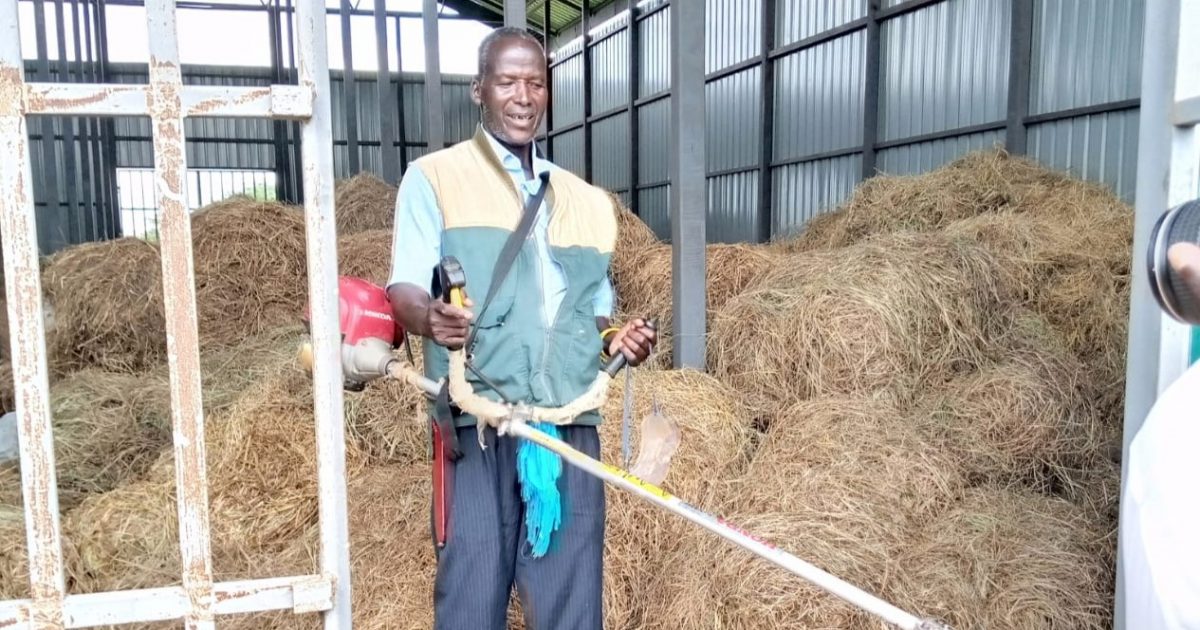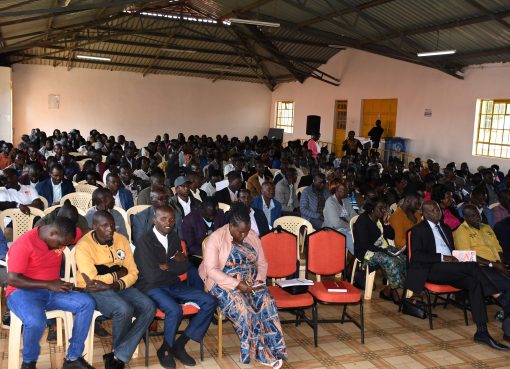Pastoralists in Kajiado County have been urged to conserve hay to cushion their livestock against adverse effects of drought.
A lead farmer and hay ambassador, Mzee John ole Wuapari, popularly known as Mzee Nyasi, says that it is prudent for livestock farmers to conserve hay now while it is in plenty and save themselves the costs incurred while relocating in search of pasture once the drought comes.
“Due to the recent long rains where Kajiado County received adequate rainfall, we now have plenty of pasture, unlike in the previous years. I urge fellow livestock farmers to conserve the hay by compacting it into bales and storing it properly for use once the drought sets in,” says Mzee Nyasi.
He adds, “It is embarrassing that once the next drought comes, we will go back to moving from one place to another in search of pasture, which we should have conserved. Instead of letting it dry away and lose its nutrients, cut it into bales for later use.”
He encouraged the farmers to commercialise pasture production by selling it to other consumers.
“Once the drought sets in, a bale of hay will sell for between Sh250-350 depending on how long the drought will last. A farmer can conserve his hay now and make profits later with the same hay,” notes Mzee Nyasi.
Mzee Nyasi, who has already stored 3,000 bales of hay for his animals, is advising the farmers who can’t afford to cut the grass to practice rotational grazing by making use of paddocks to minimise wastage of pasture and control forage utilisation, hence increasing grazing periods even during drought.
He urges leaders from all livestock keeping areas to build large hay barns for use in every location in their constituencies so that pastoralists can cut on costs of relocation.
By Diana Meneto





